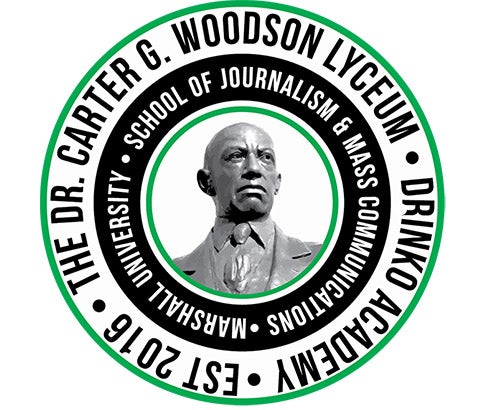Burnis Morris, co-founder and director of the Woodson Lyceum, said because the summer institute for teachers begins on June 19 (“Juneteenth”), the entire community will be given access to the presentation about the end of American slavery in 1865.
“The observance has been growing in popularity in recent years,” Morris said. “However, few people in this region seem to know much about Juneteenth, and we’ve invited an outstanding speaker to commemorate this historic event.”
The Juneteenth speaker is Dr. Joseph Tucker Edmonds, assistant professor of Africana Studies and Religious Studies and associate director of the Center for the Study of Religion and American Culture, all at Indiana University-Purdue University Indianapolis. He also is president of the Indianapolis branch of the Association for the Study of African American Life and History, an organization founded in 1915 by Woodson, the former Huntington educator who is considered the Father of Black History. The public may access this 11:45 a.m. June 19 presentation through the following link: https://tinyurl.com/2bmusaed.
The second lecture open to the public is a “Book Talk” with Dr. Jarvis Givens, assistant professor of education at Harvard University. Givens’ new book, “Fugitive Pedagogy: Carter G. Woodson and the Art of Black Teaching,” was just published by Harvard University Press. His presentation is scheduled for 11:30 a.m. June 20. The session is available using this link: https://tinyurl.com/ypnt46ee.
The lyceum’s fourth institute for teachers is supported by a grant from the West Virginia Humanities Council. It convenes June 19-23 as a virtual program. The institute is a graduate humanities course offering three credits. The teachers receive $500 stipends, and their tuition expenses are covered by the grant. The Woodson Lyceum was formed in 2016 as a collaboration between Marshall’s Drinko Academy and W. Page Pitt School of Journalism and Mass Communications.
“Before Woodson began the Negro History Movement (Black History Movement) in 1915 with the founding of the association, Black History received little respect in America, and African Americans’ achievements were often denied by mainstream educators,” Morris said. “However, Woodson’s work – including creating Negro History Week/Black History Month – changed all that. Few people today would deny Blacks have contributed much to America.
“Much work remains since Woodson’s efforts to put Black contributions in classes and educate society at large — beyond celebrating Black History each February.”
Morris, however, said because of centuries of neglect and misinformation about African Americans, few people know much about Black History. He said teachers need support in their classes and they need tools, which the institute provides.
“The lyceum supports integrating Black History in classes and education generally,” he said. “The institute makes a strong statement about our commitment to Woodson’s cause, which is our cause, too.”

